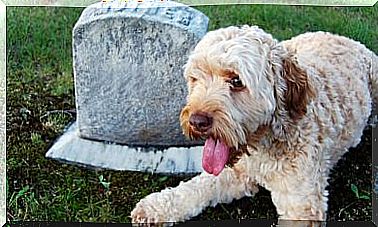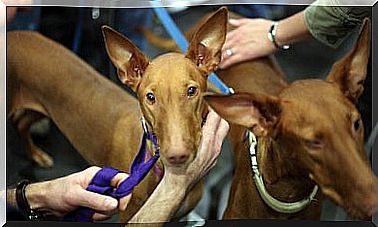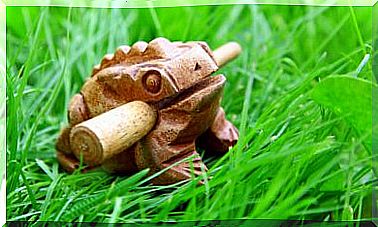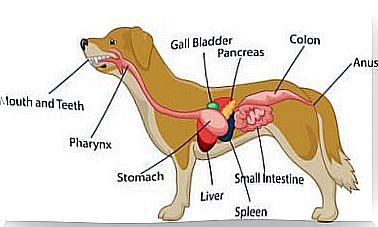Most Common Diseases In Horses
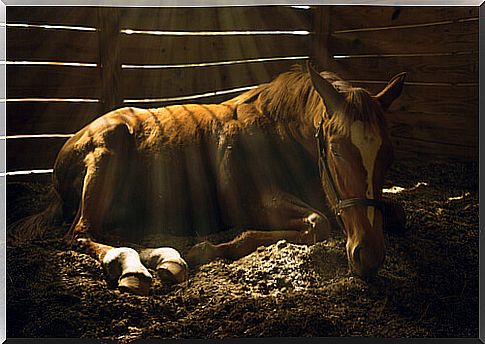
Horses are among the most beautiful animals on our planet. Their physical build endows them not only with an admirable elegance, but also with a privileged strength and physical resistance. However, they need the appropriate care to avoid being affected by the most common diseases in horses.
Next, we will talk about the most frequently diagnosed health problems in horses; We will see how to provide adequate preventive medicine to combat the most common diseases in horses.
How many years does a horse live?
The life expectancy of a horse can vary according to its breed, its lineage and the specific characteristics of its body. Generally speaking, it is estimated that horses can live between 25 and 30 years in optimal conditions. Even ponies, also known as dwarf or miniature horses, can reach 40 years.
However, we must consider that the longevity of each equine also depends on factors external to its body. By this, we mean that their life expectancy also depends on the care, environment and lifestyle provided by their caregiver.
A horse that lives in a positive environment has balanced nutrition and receives proper care. It will last longer than equines that do not have adequate preventive medicine or that develop physically and mentally exhausting activities.
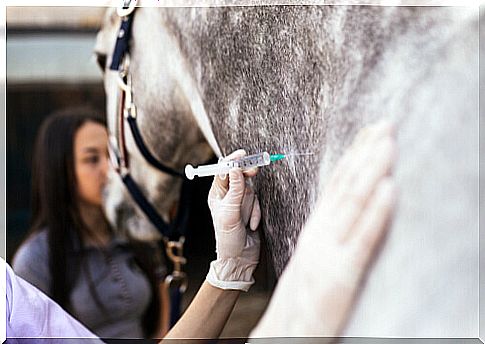
The 4 most common diseases in horses
-
Tetanus in horses
Tetanus is a bacterial pathology that often affects horses. It develops from the introduction of the bacterium Clostridium tetani into the animal’s body. Contact with this pathogen usually occurs through an open wound or injury.
The first visible signs of this disease take at least a week to appear. The typical symptoms of tetanus occur because the bacterium Clostridium tetani releases two toxins into the horse’s body, which act on the nervous system .
The first characteristic symptom of tetanus in horses is involuntary muscle contractions that are constantly repeated. With the advance of the bacteria in the body, the horse may also present the following symptoms:
- Impossibility of flexing the legs.
- Jaws closed and very tight (mandibular lockjaw).
- Sardonic laugh (facial expression characterized by retraction of the lip corners and wide-open eyes).
It is essential to consult a specialized veterinarian when identifying these symptoms, in addition to maintaining optimal hygiene in the horse’s environment. Thus, we will avoid leaving sharp and sharp objects on the ground.
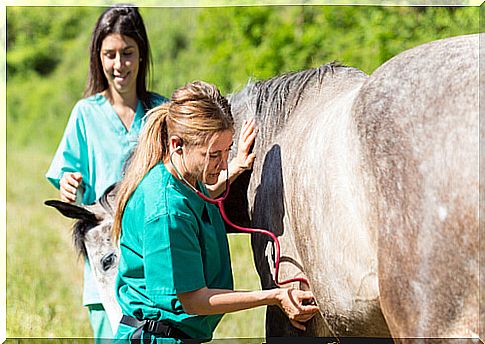
-
Flu or Equine Influenza
Equine flu is also one of the most common diseases in horses. It is a very contagious disease that is caused by some subtypes of the Influenza virus ; the airway is the main form of infection through sneezing.
In principle, the disease is concentrated in the upper respiratory tract, but can progress rapidly to the lungs. Much of its symptoms and possible complications are similar to the flu in humans. Its main symptoms are:
- Loss of appetite
- Sneezing
- Cough.
- Runny nose.
- Recurrent fever (not constant).
- Conjunctivitis.
If these symptoms are not treated quickly and adequately, complications such as pneumonia and bronchitis can develop; it is essential to act on time.
When observing the first symptoms, it is essential to seek specialized veterinary care for your horse. Acting quickly can prevent symptoms from reaching your lungs and causing more severe complications.
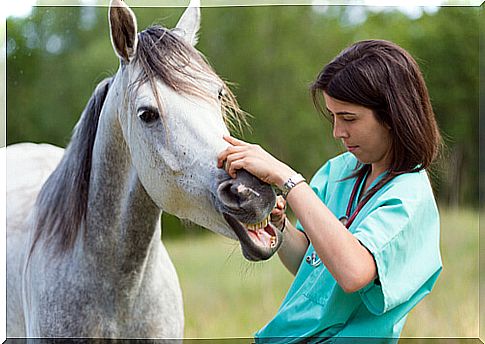
-
Drooling in horses
Babeosis is a disease that affects the red blood cells, and is caused by a protozoan called babesia. Ticks are the main vectors of babesia, and it is that they allow them to enter the body through their bites.
The main symptoms of babeosis in horses are:
- Pale mucous membranes (a clear sign of anemia).
- Anemia.
- Fever.
- Anorexy.
- Darkening of urine (cognac-brown color).
- Lethargy.
- Soft spot.
- Sudden death.
To prevent equine drooling, it is essential to periodically deworm your horses with good quality products. In addition, when observing these symptoms, remember to consult a specialized veterinarian urgently.
-
Colic in horses
When we talk about colic in horses we refer to a set of health problems with various causes, which produce spasmodic pain in the abdomen. They generally involve complex symptoms that can vary depending on the specific cause of the colic.
However, the following symptoms of colic in horses can be mentioned:
- Restlessness and nervousness.
- Excessive sweating
- Dehydration
- Constipation.
- Roll over on himself.
- Uncontrolled or awkward movements, which may include self-mutilation.
- Constipation.
- Abdominal bloating and gas
The treatment of colic in horses consists of relieving pain and adopting preventive measures aimed at combating or controlling the cause. Logically, the guidance of a specialized veterinarian is required to diagnose the cause and administer appropriate treatment.



